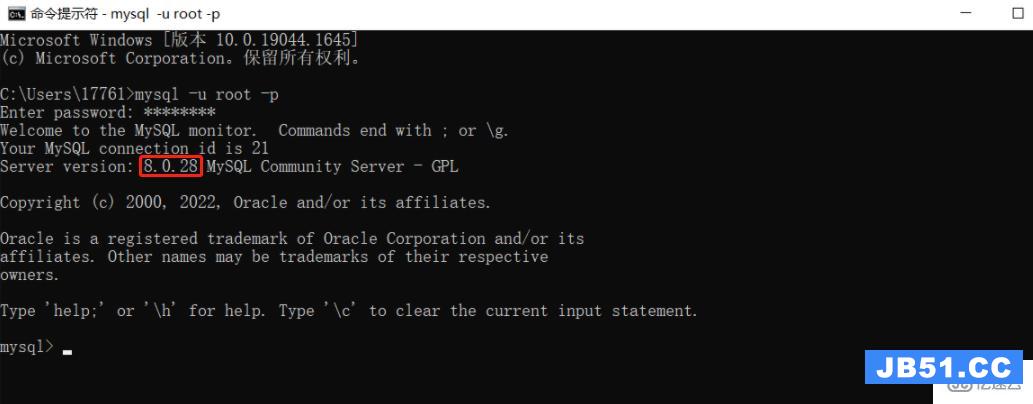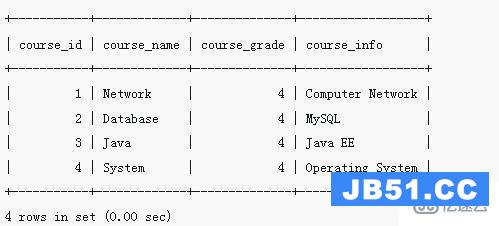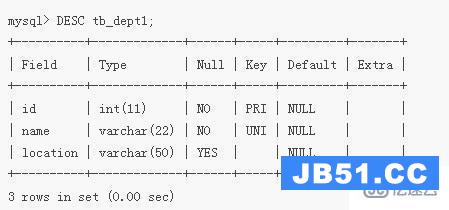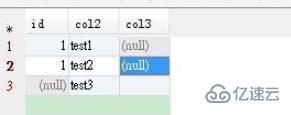MYSQL中怎么实现单双向同步,针对这个问题,这篇文章详细介绍了相对应的分析和解答,希望可以帮助更多想解决这个问题的小伙伴找到更简单易行的方法。
Sever info:
Master:192.168.1.3
Slave:192.168.1.4
脚本使用教程:
Master:192.168.1.3
1、解压TAR包
[root@sql1 down]# tar -zxf -master-slave.tar.gz
2、进入目录设置权限
[root@sql1 down]# cd MysqL-master-slave
[root@sql1 MysqL-master-slave]# chmod 777 MysqLsa.py
3、打开master文件,设置你需要同步的库
[root@sql1 MysqL-master-slave]# vi master
log-bin=/var/log/MysqL/MysqL-bin
binlog-do-db=wgdb
log-bin=/var/log/MysqL/updatelog
4、运行脚本程序(这里注意如果你的MysqL默认安装路经不是‘/usr/local/MysqL'在此脚本程序的10~11行把成“export LD_LIBRARY_PATH=your path '你自己路经地址,否则有可能程序里面MysqLdb模块报错
[root@sql1 MysqL-master-slave]# ./MysqLsa.py
----------------------------------------------------------------------
1)Installation MysqL Master
2)Installation MysqL Slave
Q)Quit Installation
----------------------------------------------------------------------
Plase,Enter your option:
1:配置安装MysqL主库
2:配置安装MysqL从库
Q:退出
5、我们选择“1”配置MysqL主库
[root@sql1 MysqL-master-slave]# ./MysqLsa.py
----------------------------------------------------------------------
1)Installation MysqL Master
2)Installation MysqL Slave
Q)Quit Installation
----------------------------------------------------------------------
Plase,Enter your option:1
6、提示要求输入SLAVE服务器IP,这步是创建访问帐号用的,我们输入SLAVE的IP:192.168.1.4,注意:千万别输错,不然SLAVE访问就会出错
Plase,Enter your option:1
Please,input your slave server ip:192.168.1.4
7、OK,执行完成以后程序不会给你任何提示!我们直接安Q退出,查看/etc/my.cnf的57行下面内容是否成功写入
54 # required unique id between 1 and 2^32 - 1
55 # defaults to 1 if master-host is not set
56 # but will not function as a master if omitted
57 server-id = 1
58 log-bin=/var/log/MysqL/MysqL-bin
59 binlog-ignore-db=MysqL,test
60 binlog-do-db=wgdb
61 log-bin=/var/log/MysqL/updatelog
8、重启MysqL
[root@sql1 down]# service MysqLd restart
Slave:192.168.1.4
1、解压TAR包
[root@sql2 down]# tar -zxf MysqL-master-slave.tar.gz
2、进入目录设置权限
[root@sql2 down]# cd MysqL-master-slave
[root@sql2 MysqL-master-slave]#
3、打开slave文件,设置你需要同步的库和master的IP
master-host = 192.168.1.3
master-user = replication
master-password = *.asDICf.1KD
master-port = 3306
master-connect-retry = 60
replicate-ignore-db = MysqL,test
replicate-do-db = wgdb
relay-log=/var/log/MysqL/slave-relay-bin
slave-skip-errors=all
4、运行脚本程序(这里注意如果你的MysqL默认安装路经不是‘/usr/local/MysqL'在此脚本程序的10~11行把成“export LD_LIBRARY_PATH=your path '你自己路经地址,否则有可能程序里面MysqLdb模块报错
[root@sql2 MysqL-master-slave]# ./MysqLsa.py
----------------------------------------------------------------------
1)Installation MysqL Master
2)Installation MysqL Slave
Q)Quit Installation
----------------------------------------------------------------------
Plase,Enter your option:
5、我们选择‘2’安装从库
[root@sql2 MysqL-master-slave]# ./MysqLsa.py
----------------------------------------------------------------------
1)Installation MysqL Master
2)Installation MysqL Slave
Q)Quit Installation
----------------------------------------------------------------------
Plase,Enter your option:2
6、检查下‘/etc/my.cnf' 57行内容是否写入
# required unique id between 1 and 2^32 - 1
# defaults to 1 if master-host is not set
# but will not function as a master if omitted
server-id = 2
master-host = 192.168.1.3
master-user = replication
master-password = *.asDICf.1KD
master-port = 3307
master-connect-retry = 60
replicate-ignore-db = MysqL,test
replicate-do-db = wgdb
relay-log=/var/log/MysqL/slave-relay-bin
slave-skip-errors=all
7、重起MysqL
[root@sql2 MysqL-master-slave]# service MysqLd restart
最后一步
1、进入Master 调整参数
[root@sql1 down]# MysqL -uroot -p
Enter password:
Welcome to the MysqL monitor. Commands end with ; or \g.
Your MysqL connection id is 2
Server version: 5.1.57-log Source distribution
copyright (c) 2000, 2010, and/or its affiliates. All rights reserved.
This software comes with ABSOLUTELY NO WARRANTY. This is free software,
and you are welcome to modify and redistribute it under the GPL v2 license
Type 'help;' or '\h' for help. Type '\c' to clear the current input statement.
MysqL> slave stop;
Query OK, 0 rows affected, 1 warning (0.00 sec)
MysqL> show master status;
+------------------+----------+--------------+------------------+
| File | Position | binlog_Do_DB | binlog_Ignore_DB |
+------------------+----------+--------------+------------------+
| updatelog.000001 | 106 | wgdb | MysqL,test |
+------------------+----------+--------------+------------------+
1 row in set (0.00 sec)
2、进入slave 调整参数
[root@sql2 MysqL-master-slave]# MysqL -uroot -p
Enter password:
Welcome to the MysqL monitor. Commands end with ; or \g.
Your MysqL connection id is 4
Server version: 5.1.57-log Source distribution
copyright (c) 2000, 2010, Oracle and/or its affiliates. All rights reserved.
This software comes with ABSOLUTELY NO WARRANTY. This is free software,
and you are welcome to modify and redistribute it under the GPL v2 license
Type 'help;' or '\h' for help. Type '\c' to clear the current input statement.
MysqL> slave stop;
Query OK, 0 rows affected (0.00 sec)
MysqL> CHANGE MASTER TO MASTER_LOG_FILE='updatelog.000001',MASTER_LOG_POS=106;
Query OK, 0 rows affected (0.02 sec)
MysqL> slave start;
Query OK, 0 rows affected (0.01 sec)
3、检查是否成功
Slave_IO_Running: Yes
Slave_sql_Running: Yes
以上配置已经全部完成,很多朋友可能会问,这只是单向同步吗?
答:只要把两个操作反向做下就OK
脚本程序问题在哪里?
答:http://down.51cto.com/data/229410
以下是主程序的代码
#!/usr/bin/python
#
#This is a MysqL reversed sync and data pool script.
import os,MysqLdb
import sys
import re
#Check that MysqL exists
if os.path.isfile('/etc/my.cnf'):
b=os.system('python MysqLdb.py')
profile = open('/etc/profile','r+')
if re.search('export LD_LIBRARY_PATH=/usr/local/MysqL/lib/MysqL/',profile.read()) is None:
profile.write('export LD_LIBRARY_PATH=/usr/local/MysqL/lib/MysqL/')
profile.close
else:
print 'Your MysqL not installiation'
sys.exit(1)
class msa:
def sql(self):
try:
try:
conn = MysqLdb.connect(host = 'localhost',user='root',passwd='')
except:
pw = raw_input('Please,input your amdin of MysqL passwd:')
conn = MysqLdb.connect(host = 'localhost',user='root',passwd='%s')%pw
IP = raw_input('Please,input your slave server ip:')
cursor = conn.cursor()
sql = "GRANT REPLICATION SLAVE,REPLICATION CLIENT,RELOAD,SUPER ON *.* TO 'replication'@'%s' identified by '*.asDICf.1KD'; Flush privileges; "%(IP)
cursor.execute(sql)
except Exception,e:
print e
sys.exit()
def mk(self):
var='/var/log/MysqL'
if not os.path.isdir(var):
os.makedirs(var)
os.chmod(var,448|56)
os.chown(var,500,500)
def master(self):
my_conf = open('/etc/my.cnf','r')
my_conf_read = my_conf.readlines()
my_conf.close
if re.search('binlog-do-db',str(my_conf_read)) is None:
master_file = open('master','r')
read = master_file.read()
my_conf_read.insert(57,read)
my_conf = open('/etc/my.cnf','w')
my_conf.writelines(my_conf_read)
master_file.close
my_conf.close
def slave(self):
my_conf = open('/etc/my.cnf','r')
my_conf_read = my_conf.readlines()
my_conf.close
if re.search('replicate-do-db',str(my_conf_read)) is None:
master_file = open('slave','r')
read = master_file.read()
my_conf_read.insert(57,read)
my_conf = open('/etc/my.cnf','w')
my_conf.writelines(my_conf_read)
master_file.close
def re(self):
my_conf = open('/etc/my.cnf','r')
#my_conf_read = my_conf.readlines()
my_conf.close
if info == '1':
= re.sub() = re.sub('log-bin=MysqL-bin','#log-bin=MysqL-bin',my_conf.read())
else:
if re.search('binlog-do-db',my_conf.read()) is None:
my_conf.seek(0)
= re.sub() = re.sub('server-id\t= 1\n','server-id\t= 2\n',my_conf.read())
else:
my_conf.seek(0)
= my_conf.read() = my_conf.read()
my_conf = open('/etc/my.cnf','w')
my_conf.writelines(sub)
my_conf.close
m = msa()
while 1 > b:
#os.system('clear')
print '--' * 35
print '\t\t1)Installation MysqL Master\n'
print '\t\t2)Installation MysqL Slave\n'
print '\t\tQ)Quit Installation\n'
print '--' * 35
if ('err' in dir()) is True:
print err
del err
info = raw_input('\t\tPlase,Enter your option:')
if info.lower() == 'q':
sys.exit()
elif info == '1':
m.sql()
m.mk()
m.master()
m.re()
elif info == '2':
m.mk()
m.slave()
m.re()
else:
err ='\t\t***You enter the option error***'
关于MysqL中怎么实现单双向同步问题的解答就分享到这里了,希望以上内容可以对大家有一定的帮助,如果你还有很多疑惑没有解开,可以关注编程之家行业资讯频道了解更多相关知识。




